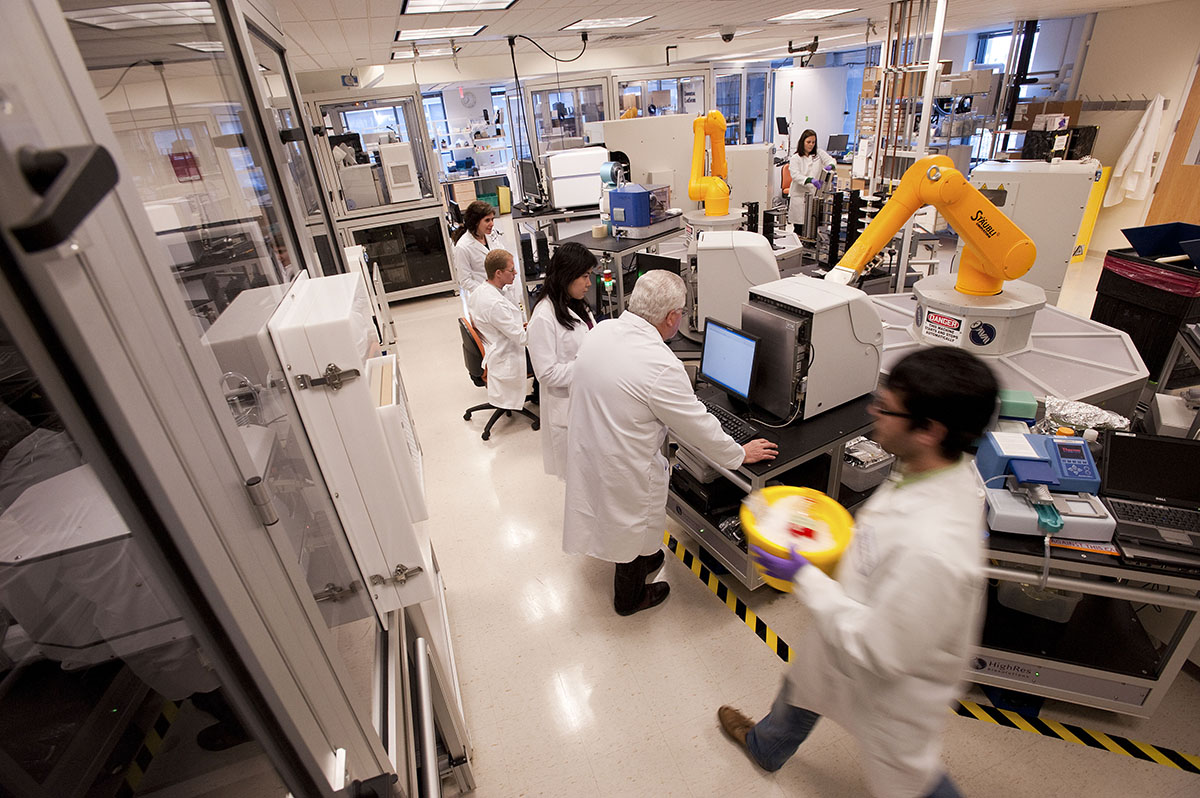Broad Institute, IBM Partner to Study Cancer Drug Resistance

Broad Institute photo by Len Rubenstein
Even if a cancer is initially contained by treatment, it often returns if and when it mutates enough to eventually evade drugs. Drug resistance contributes to as many as 600,000 deaths per year, according to the American Cancer Society, but why it happens isn’t always clear.
A new partnership between the Broad Institute and Watson IBM aims to get to the bottom of those drug resistance mysteries. The two institutions are launching a five-year, $50 million joint effort to study thousands of drug-resistant tumors, hopefully determining why patients’ tumors begin to dodge treatment and how to stop it.
The project will play to both organizations’ strengths. The Broad Institute will analyze patients who originally responded well to treatment but began to resist drugs, generating tumor genome sequence data for each individual and studying it in the laboratory. Then, Watson will sift through that heap of data, looking for patterns and insights about why cancers become drug-resistant.
Understanding drug resistance is huge unto itself, but learning more about who it affects and why may also help develop better cancer treatments moving forward. “The key will be learning from clinical experience, so that we know cancer’s moves in advance and can plan strategies to cut off its escape routes,” Eric Lander, founding director of the Broad Institute, said in a statement.
Building on a growing spirit of collaboration in the research world—President Obama’s Precision Medicine Initiative and Vice President Biden’s Cancer Moonshot come to mind—the Broad and IBM plan to share the results with the larger scientific community, in the hopes that others may further advance the work.
“What we and many others will learn with this information will have important implications for the future of cancer precision medicine and cancer diagnostics,” Todd Golub, chief scientific officer and founder of the cancer program at the Broad Institute, said in the statement.


